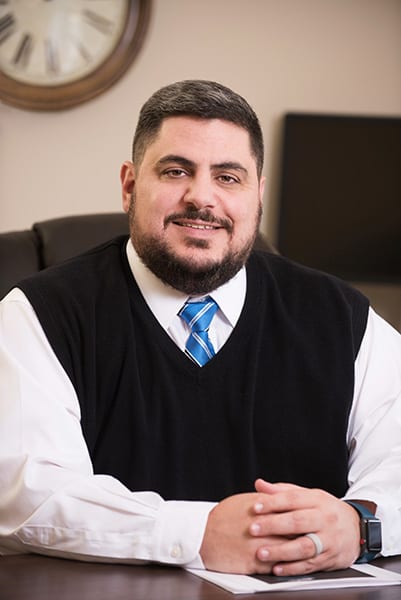In the News

COVID-19 Crisis Increases Use of Teletherapy and Telepsychiatry to Rural Counties
Although telehealth has been around for more than 20 years, approval by insurers may have slowed down the evolution of its prevalence in mental health services. COVID-19 has forced the issue to the forefront, however, and behavioral health providers are now offering expanded teletherapy and telepsychiatry services, most notably delivering services while patients remain in their homes. In the last month, For All Seasons staff has had to make these changes as well, expanding these options for its clients as more stringent self-quarantining and social distancing requirements have been put in place on the Mid Shore.
Telehealth is the process of providing health care from a distance through technology, often using videoconferencing. Telepsychiatry, a subset of telehealth, can mirror the range of on-site services including psychiatric evaluations, teletherapy (individual therapy, group therapy, family therapy), patient education, and medication management. Traditionally, patients had to come to a qualified health center and interface with a computer to see their teleprovider who was based elsewhere. COVID19 has propelled telehealth services into the home.
According to the American Psychiatric Association, while some people may be reluctant or feel awkward talking to a person on a screen, experience shows that most people are comfortable with it. They add that some people may be more relaxed and willing to open up from the comfort of their home or a convenient local facility. It may even be successful in reducing the barrier of stigma for people seeking services.
Dr. Bill Cerrato, Chief Medical Officer at For All Seasons, comments, “In child and adolescent psychiatry, where it can be hard to find subspecialists, telehealth will enable us to bridge that gap in our rural area.”
The Rural Maryland Council has awarded For All Seasons funding to cover the costs for onboarding a new Psychiatric Nurse Practitioner and purchasing equipment that will allow the agency to offer telepsychiatry in all six of its satellite offices.
Dr. Cerrato adds, “Through partnering with Iris Telehealth, a telepsychiatry provider group, the addition of a Psychiatric Nurse Practitioner has already helped us supplement our staff to better serve the growing mental health needs on the Shore.”
Through the COVID-19 crisis, the number of patients using teletherapy and telepsychiatry at For All Seasons has grown from 4 percent from the fall of 2019 to 55 percent today, with the majority of staff now utilizing this platform to deliver care.
Dr. Cerrato, who is also the Medical Director at Peninsula Regional Medical Center, notes that since For All Seasons began its traditional on-site telehealth services satisfaction has been high.
He comments, “When patients are home, they are much more relaxed. We find that kids are especially more comfortable at home. They want to show us their pets or a special toy. We also find that with new patients, it is easier to build rapport, and we have fewer patients not showing up for their appointments when we use telehealth to deliver care where they feel most comfortable. Post COVID19, Telehealth regulations have allowed patients to remain in their homes, pushing satisfaction through the roof.”
According to the American Psychiatric Association, research has also shown that overall remote treatment experiences among all age groups have been positive, and may help people with autism or severe anxiety disorders as well as patients with physical limitations. It has also shown that telepsychiatry has been found especially effective in the treatment of PTSD, depression, and ADHD. This treatment option has even been shown to reduce the need for trips to the emergency room, reduce delays in care, and can improve the continuity of care and follow-up.
Dr. Cerrato explains that doctors and therapists who really interact with the screen get the best results. He states, “If you do it right, it’s just like you are in the room with the patient. Providers who don’t engage with the screen don’t get as high a satisfaction rating.”
While Dr. Cerrato states most diagnoses are appropriate for teletherapy and telepsychiatry, there can be challenges dealing with psychotic and paranoid behaviors or patients with severe intellectual disabilities. In those cases, family members or loved ones can be helpful when attending the sessions along with the patients.
One of the most important elements of teletherapy and telepsychiatry is the platform that is used to deliver the service. The preferred HIPAA-compliant platform of For All Seasons is Doxy.me which provides a web address that the provider can email to the patient that is the same for each session. During the COVID-19 crisis, however, patients are allowed to use applications such as Facetime, Skype, Messenger on their phones or computers, and just the regular telephone so that care can continue to be provided. For All Seasons also remains steadfast in engaging the entire patient population, utilizing Skype for the group call feature so interpreters can join Spanish speakers.
For All Seasons hopes new Interagency Telehealth initiative will enable the agency’s psychiatrists and nurse practitioner in the Easton office to see patients via telehealth who are onsite at the other For All Seasons offices in Denton, Stevensville, Chestertown, and Cambridge, alleviating travel to Easton.
For Dr. Cerrato, the silver lining in this new treatment delivery is that it can increase access to care in rural areas like the Eastern Shore. He comments, “For All Seasons has always had parity as a priority and is moving this initiative forward.”
Beth Anne Langrell, CEO at For All Seasons, adds, “Dr. Cerrato brings a perspective for treating people in the here and now, but is also forward-thinking about our service delivery for the future. He brings continuity to our medical team and is helping us be a leader in behavioral health in the region.”
